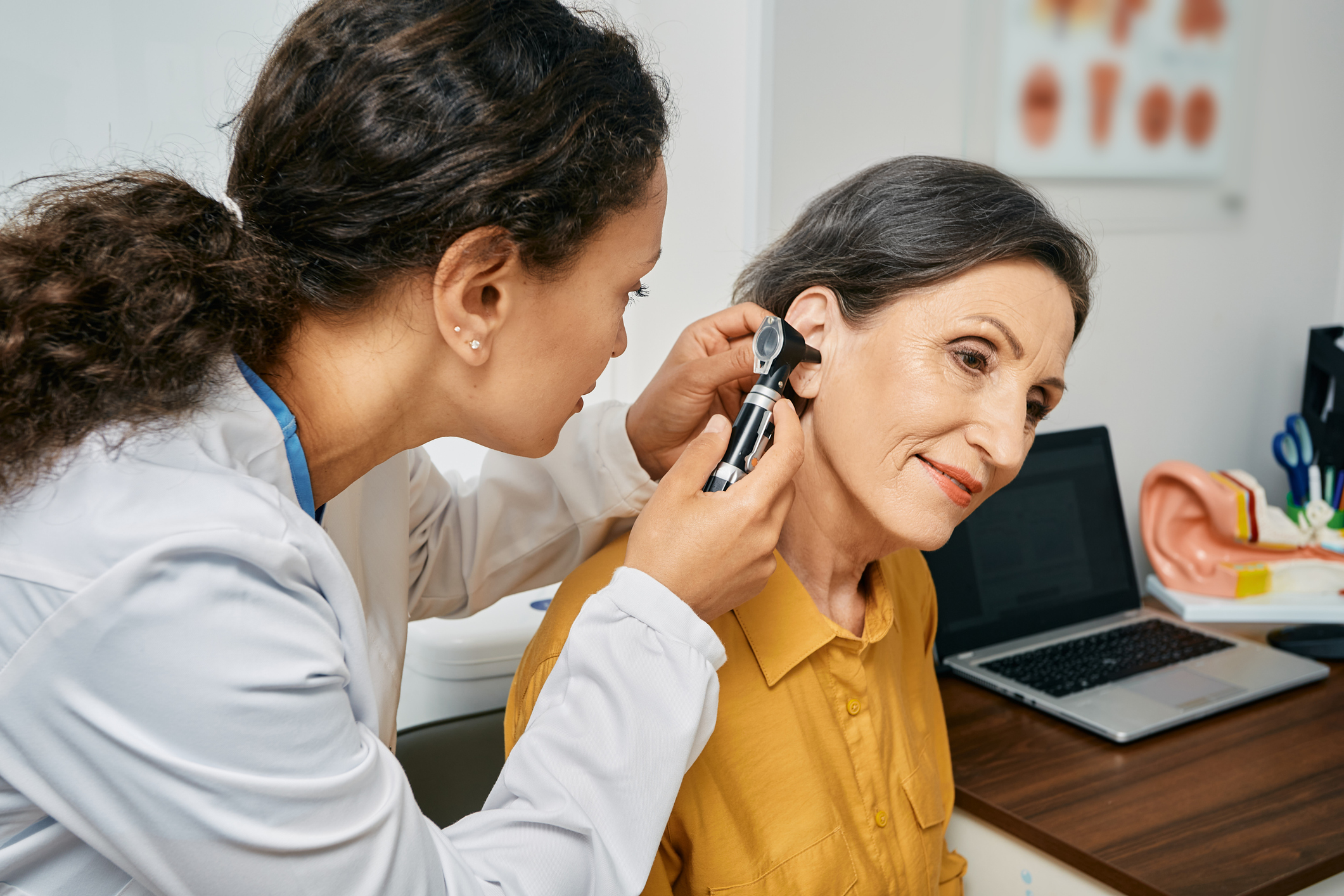Do you need hearing aids but aren’t sure if you really need to get them professionally fitted? Many people assume they can just buy an over-the-counter hearing aid and start using it right away. While you can experience some benefits from this approach, many users will discover its limitations and find themselves feeling frustrated and disappointed.
Proper hearing aid fitting is crucial for your comfort, the device’s effectiveness, and the long-term health of your hearing.
The Importance of Customized Hearing
Hearing aids are not one-size-fits-all kinds of devices. They need tailoring to match your individual and unique hearing needs, ear anatomy, and lifestyle. By working with a skilled audiologist, like our team at Associated Hearing, for a professional fitting, you can ensure that your device amplifies sound appropriately and matches your specific needs.
The fitting process involves far more than just finding the right physical size and shape of hearing aid. It also includes updating the device’s software, adjusting settings, and tuning amplification based on your comprehensive hearing assessment, or audiogram. We use these results to ensure that your hearing aids are programmed to address the specific frequencies you struggle to hear.
The Risk of Skipping Professional Fitting
Without a proper fitting, you may experience several issues that may include:
- Discomfort: Poorly fitted hearing aids can press on sensitive areas of your ear or cause irritation, making them uncomfortable to wear for long periods.
- Poor Sound Quality: Incorrect programming can lead to sounds being too loud, too soft, or distorted, making it difficult to hear speech or other important audio clearly.
- Potential Hearing Damage: Over-amplification from improperly adjusted devices can potentially worsen your hearing loss over time.
- Underperformance: If the hearing aid isn’t fine-tuned to your specific needs, it may fail to address the frequencies you have the most trouble with, reducing its effectiveness.
What to Expect During a Professional Hearing Aid Fitting
When you visit our office, our team of expert hearing care professionals will walk you through the following steps to adjust your fit:
- Hearing Assessment: Your first step in this process is to undergo a comprehensive hearing test to determine the type and degree of your hearing loss. This audiogram data is crucial for programming the hearing aid.
- Lifestyle Discussion: We will also ask you questions about your daily routines, social activities, and sound environments. This helps us tailor the device’s settings to your unique needs.
- Physical Fit: Based on the anatomy of your ear, we will work with you to select the most appropriate hearing aid style, such as in-the-ear or behind-the-ear models, and make adjustments to ensure a comfortable, secure fit.
- Programming and Adjustment: Using audiogram data, our team can program your hearing aid to match your hearing profile and preferences, ensuring amplification is precise across different frequencies.
- Follow-up Appointments: Over time, we’ll work with you to fine-tune the settings based on your feedback and evolving needs.
The Benefits of a Customized Hearing Aid Fit
When you have a hearing aid that’s been properly fitted, the difference can be life-changing:
- Conversations become clearer and easier to follow, even in noisy environments
- A well-fitted device feels more natural and doesn’t cause irritation or fatigue
- Reducing the effort required to listen can also help to reduce stress and improve cognitive function
- Having the right fit and maintaining your hearing aids can help them function optimally for years to come
Don’t Settle for Off-the-Shelf Hearing Aids
While over-the-counter (OTC) hearing aids are becoming more widely available, they’re typically designed for only mild to moderate hearing loss. They lack the customization and fine-tuning that professional fitting services can provide. Although these devices can offer some improvement, they aren’t likely to deliver the same level of performance or comfort as hearing aids that have been professionally fitted.
Additionally, self-fitting OTC devices come with the risk of miscalibration, which can lead to frustration or even potential harm to your hearing.
–
If you’ve recently been diagnosed with hearing loss or are experiencing ongoing issues with your current hearing aids, it’s time to book an appointment with one of our qualified hearing care providers. A professional evaluation will ensure you get the most from your hearing aids while maintaining your long-term hearing health.
At Associated Hearing, we provide a comprehensive and compassionate approach to hearing aid fittings. During your appointment, you can expect a detailed hearing assessment, expert guidance for selecting and adjusting your hearing aid, and follow-up care to ensure your long-term satisfaction.
Don’t settle for discomfort or subpar performance. Take the first step towards better hearing by scheduling your appointment today.

